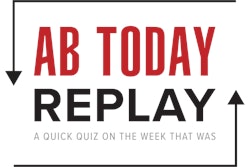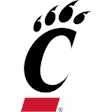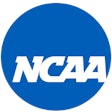By some quirk that only a true believer would pretend to understand, Al Davis died within a week of the United Football League going on life support. Yesterday, UFL founder and owner Bill Hambrecht announced the league was eliminating the final two weeks of its six-game regular season and holding its championship game Friday. With the four-team league having lost a reported $100 million over the past two years, cutting short the season was being counted on to "save the league the cost of salaries and team operations," as the Associated Press said, even though salaries are small by professional sports standards (players are paid a flat $5,000 per game).
Davis, of course, was best known for the 41 years he spent as principal owner of the NFL's Oakland Raiders, but he was also plucked from the coaching/GM ranks to take the helm of the American Football League in 1966, when he helped set the stage for the NFL-AFL merger in June of that year by aggressively targeting active NFL players (in all, seven quarterbacks) to be recruited for the rival league's young teams. Opposed to the $18 million in compensation the AFL would have to pay the NFL according to the terms of the merger agreement, and convinced that the AFL would prove to be superior to the NFL if left to compete directly with the more established league, Davis quit as commissioner that July and returned to the Raiders as a general partner.
The AFL remains the only rival league to succeed in going mano a mano with the NFL. Over the years, many pro football leagues have been formed, whether competing directly seasonally or regionally, or conceived as a fill-in at times or in places lacking pro football. All have failed. Three previous American Football Leagues and the All-America Football Conference preceded the AFL, and in more recent times, an early-90s expansion of the Canadian Football League into the U.S. was followed by a rapid contraction, the Professional Spring Football League (1992) folded before playing a single game, the Regional Football League played nine weeks in 1999, the Spring Football League of 2000 lasted two weeks, and the XFL lasted 12 weeks as an offseason diversion in 2000. (The World League of American Football, which counted seven North American teams among its 10 founding franchises, completed two seasons with U.S.-based teams, and had the support of an empire-building NFL.) The USFL, though influential, collapsed in 1985 after three seasons, $163 million in losses and an ultimately unsuccessful antitrust lawsuit against the NFL.
The UFL's Hambrecht said in a statement yesterday that the league would turn its focus to "building a blueprint for the long-term success of the league" and that there were plans to expand from four to six teams in 2012. This qualifies him to join the ranks of football's true believers, and perhaps he's praying for divine intervention, as well.
Why bother? What makes any group of would-be league and team executives think they can go up against the nation's most (or second-most) popular sport and survive? What makes anyone think that Americans don't get enough pro and college football? What on earth could they be thinking?
Just fold, baby!
The AFL survived because the salary structure of the NFL then allowed a new league with shallower pockets to entice athletes with contracts that were as good, or close to as good, as what was being offered by the entrenched league. Also, existing television contracts were of a scale (and demand given the lack of sports on TV was lower) to allow a rival to gain an electronic foothold. Many of the AFL's teams had tenuous holds on solvency, it is true, but a league with no history at all was able to attract enough high-profile athletes to entice spectators in the tens of thousands in many cities that the NFL didn't serve (it served only 12 when the AFL was founded) and an initial five-year, $10.6 million television contract with ABC. Just four years later, the AFL inked a $36 million television deal with NBC.
The UFL's teams will have played a total of 40 games (plus six championship and consolation games) over its three-year existence, and has lost $100 million. Speculation a couple of years ago was that the UFL could have a future as a developmental league under the NFL; others have called it a "second-tier" pro league with no connection to the NFL as a minor league.
Would you stake more than $100 million on a second-tier league? By any chance, do you believe in miracles?




































